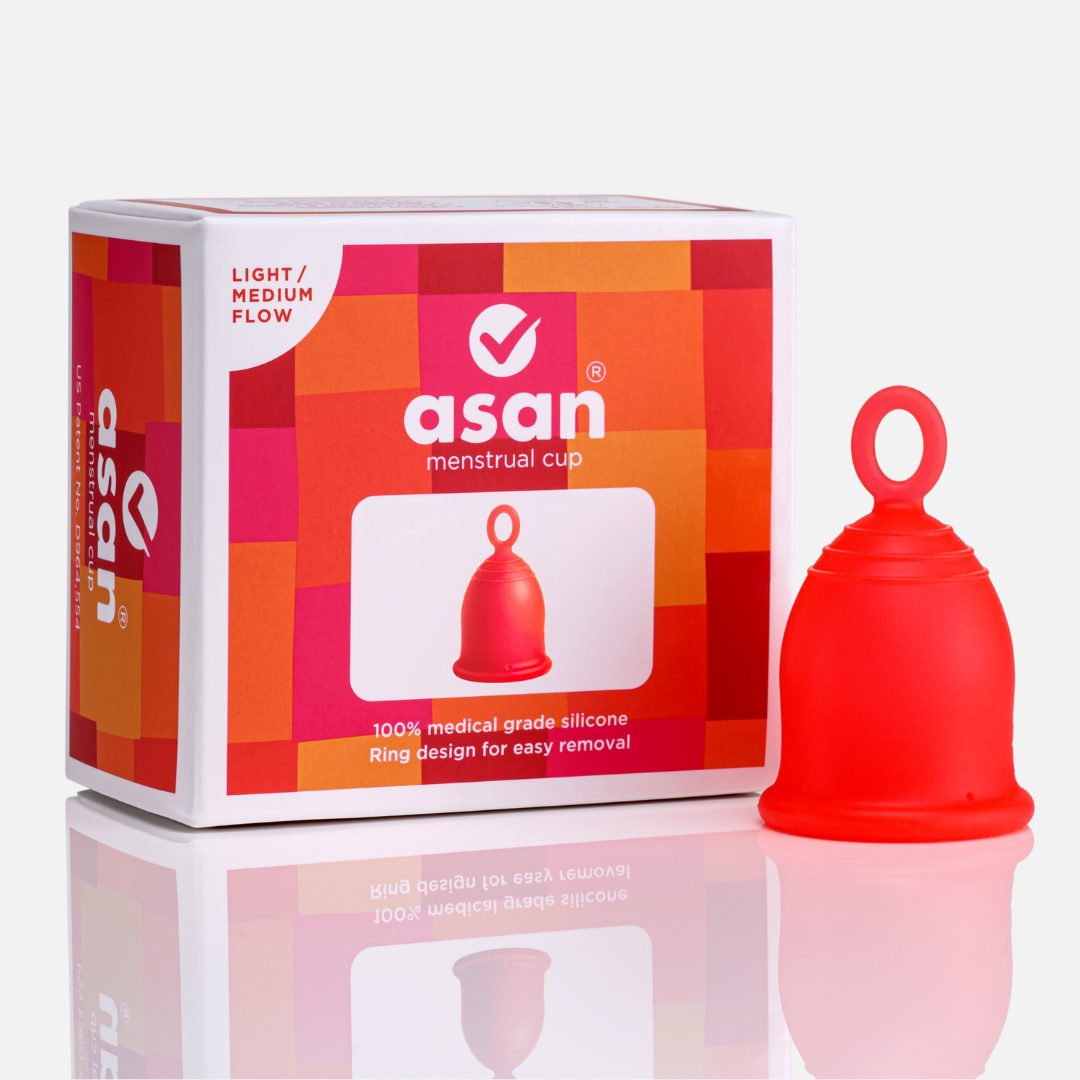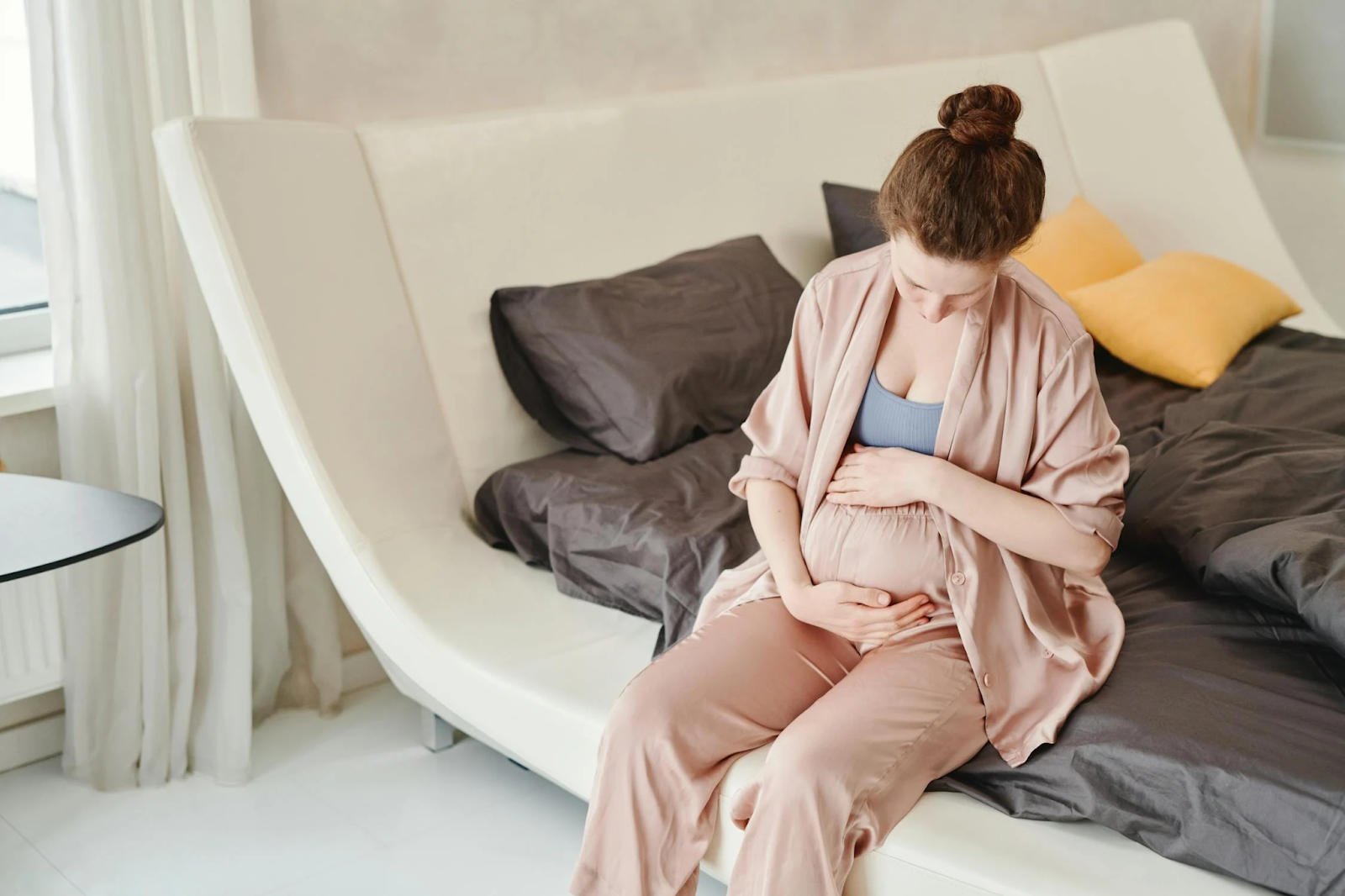
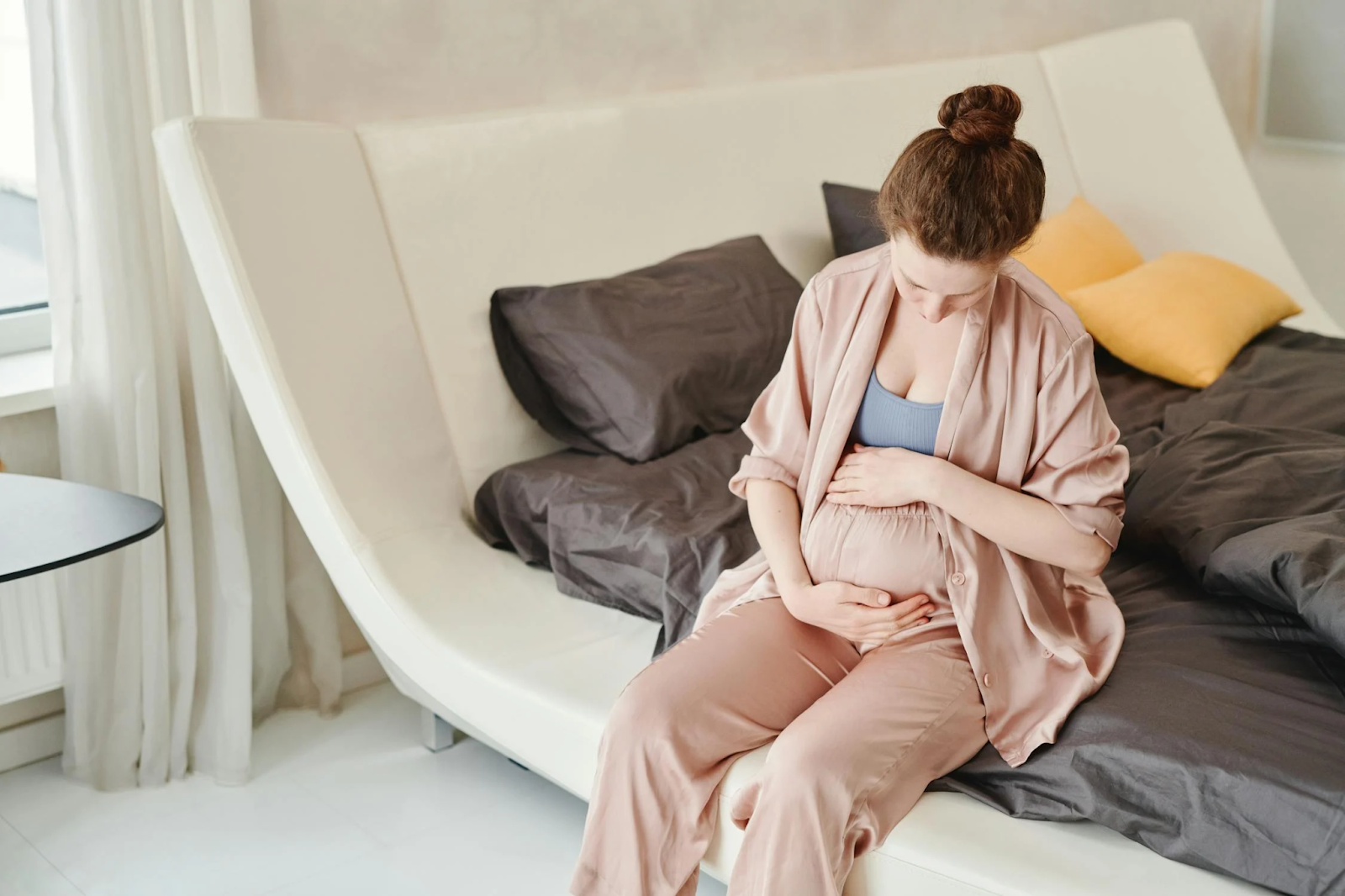
Have you ever wondered what happens to periods during pregnancy?
While the idea of skipping periods in pregnancy is common knowledge, some people may experience spotting or period-like bleeding during pregnancy.
Pregnancy and the menstrual cycle are very closely linked, but they don’t work the way people may assume. Once conception occurs, your body undergoes hormonal changes, and periods in pregnancy stop. However, that doesn’t mean all bleeding vanishes completely.
So what causes menstrual changes in early pregnancy, and why do some people experience irregular periods during gestation? Let’s break it all down.
Please note that this blog should not be used as medical advice.
What happens to your menstrual cycle when you get pregnant?
When you conceive, your body goes through significant changes.
One major shift is the cessation of the menstrual cycle during pregnancy. This means that regular periods stop once you are pregnant. The hormonal changes that support the growth of the foetus also disrupt the regular menstrual cycle.
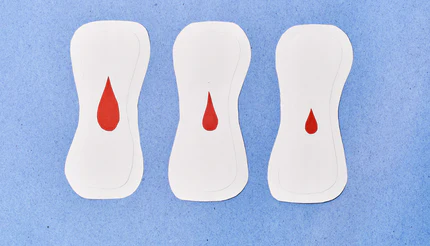
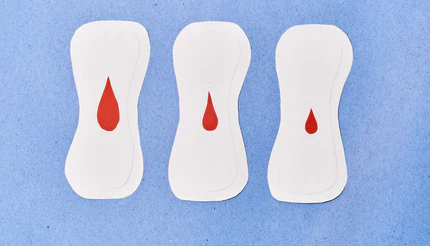
Why do women experience bleeding during pregnancy?
While regular periods cease, some women do experience vaginal bleeding during pregnancy. This isn’t the same as a menstrual period.
This type of bleeding, including spotting during pregnancy, can be due to various reasons. It is crucial to note that any bleeding during pregnancy should be discussed with your healthcare provider.
There are several reasons why bleeding might occur when you are pregnant:
1. Implantation bleeding: This happens when the fertilized egg attaches to the uterine lining, leading to light spotting. It is one of the early signs of pregnancy.
2. Hormonal changes: The body undergoes significant hormonal shifts during pregnancy, which can sometimes lead to irregular periods during gestation.
During this time, progesterone and human chorionic gonadotropin (hCG) levels rise to support the pregnancy, while oestrogen fluctuates. These pregnancy hormone changes can affect the uterine lining, occasionally causing light bleeding or spotting.
3. Cervical changes: Increased blood flow to the cervix can cause light bleeding, especially after activities like intercourse.
How can you differentiate between periods and pregnancy bleeding?
Understanding the difference between a regular period and bleeding during pregnancy is essential. A typical period involves a consistent flow lasting several days.
In contrast, menstrual bleeding during pregnancy can be a sign of some abnormality, so you should definitely consult a healthcare professional if you experience this.


What should you do if you experience bleeding during pregnancy?
Experiencing bleeding in gestation can be unsettling. Here’s what you can do:
- Consult a doctor: Always inform your doctor or midwife about any bleeding. They can assess the situation and provide guidance.
2. Monitor the bleeding: Keep track of the amount, colour, and duration of the bleeding.
3. Rest: Depending on the cause, your doctor might recommend rest or specific activities to avoid during your pregnancy to reduce the bleeding.
Can you get pregnant while on your period?
It is a common myth that you can’t conceive during your period. While the chances are lower, it is still possible.
Sperm can survive in the body for a few days, and if you have a shorter menstrual cycle, you might ovulate soon after your period ends.
Therefore, the menstrual cycle and conception are closely linked, and understanding your cycle can help in family planning or avoiding an accidental pregnancy.
How do pregnancy tests relate to your menstrual cycle?
A missed period is often the first sign that prompts women to take a pregnancy test. These tests detect the presence of the hormone hCG, which is produced after implantation.
It is essential to note that menstrual cycle and pregnancy tests are interconnected. Taking a test too early, especially before a missed period, might result in a false negative.
For accurate results, it is best to wait until at least 7-10 days after your missed period to take a home pregnancy test. This gives hCG levels enough time to rise, increasing the likelihood of a reliable result.
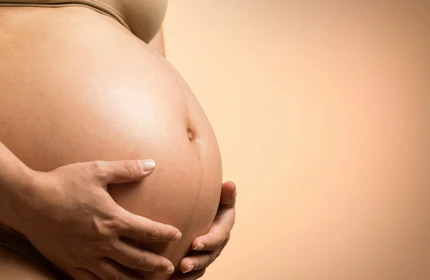
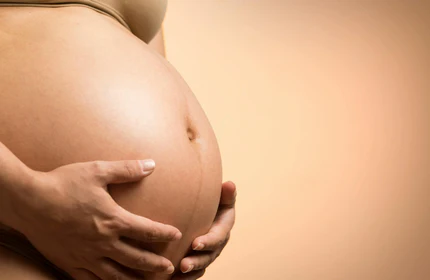
Can hormonal changes during pregnancy affect your periods?
Absolutely. The surge in hormones, particularly hCG and progesterone, during pregnancy leads to amenorrhea in pregnancy, which is the absence of periods. These hormonal shifts are crucial for maintaining the pregnancy and supporting the developing foetus.
Is it possible to have regular periods while pregnant?
No, having regular menstrual periods while pregnant isn’t possible. However, some women might experience period-like bleeding during pregnancy, which can be mistaken for a regular period. This is why understanding the nature of the bleeding and consulting with a healthcare provider is vital.
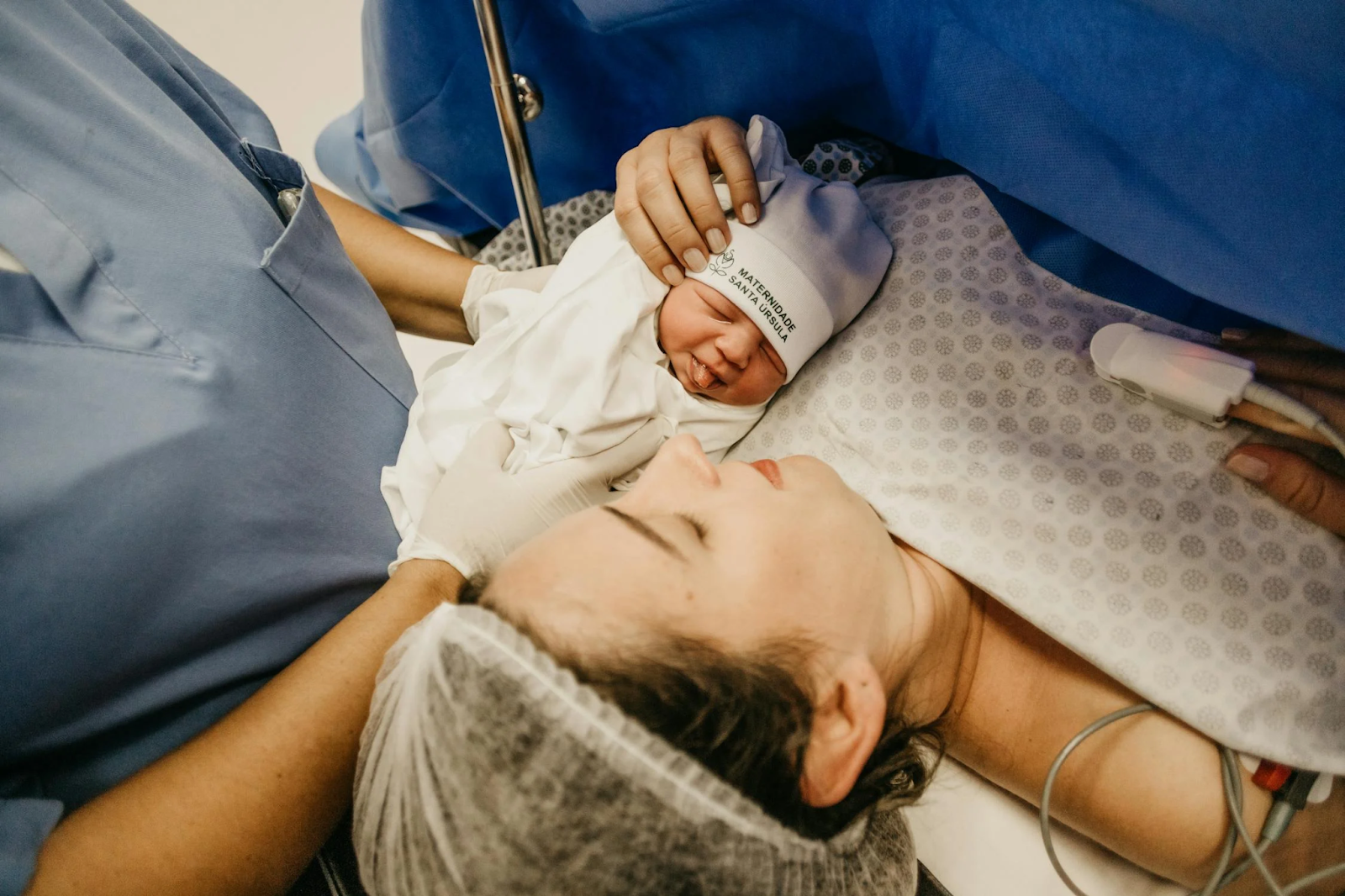
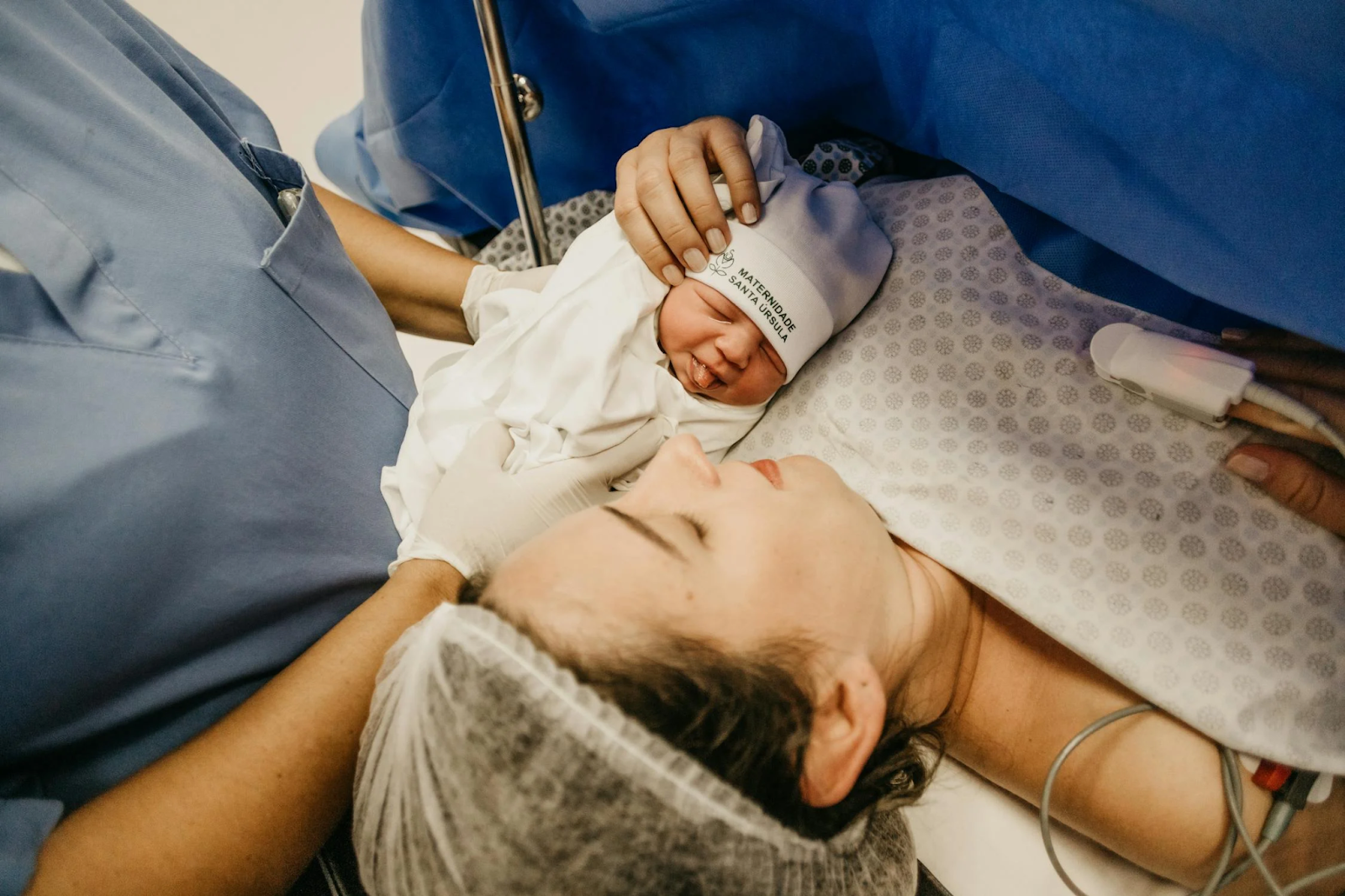
When do periods typically resume after pregnancy?
After giving birth, your body needs time to return to its pre-pregnancy state. The return of your period varies depending on several factors:
- Breastfeeding: If you are breastfeeding exclusively, it might delay the return of your menstrual cycle.
2. Individual differences: Every woman’s body is different. Some might see the return of their periods within weeks, while for others, it might take several months.
It is essential to note that ovulation can occur before your first postpartum period, so discussing contraception options with your healthcare provider is advisable if you wish to prevent another pregnancy soon after childbirth.
Could a menstrual cup help with menstrual pain?
Post-partum bleeding, also known as lochia, is the body's natural way of shedding the uterine lining after childbirth. This is not the same as menstrual flow during gestation.
Post-partum bleeding is a combination of blood, mucus, and tissue. This type of bleeding typically lasts for around four to six weeks, though the duration can vary from person to person.
During this time, using internal products like menstrual cups or tampons isn’t recommended due to the risk of infection. Healthcare professionals advise sticking to maternity pads to allow the body to heal properly.
Refer to this to understand more about postpartum bleeding and the changes in your body after giving birth.
Once your period has settled back into a rhythm and your medical professional has given you the green light, you can comfortably use a menstrual cup.
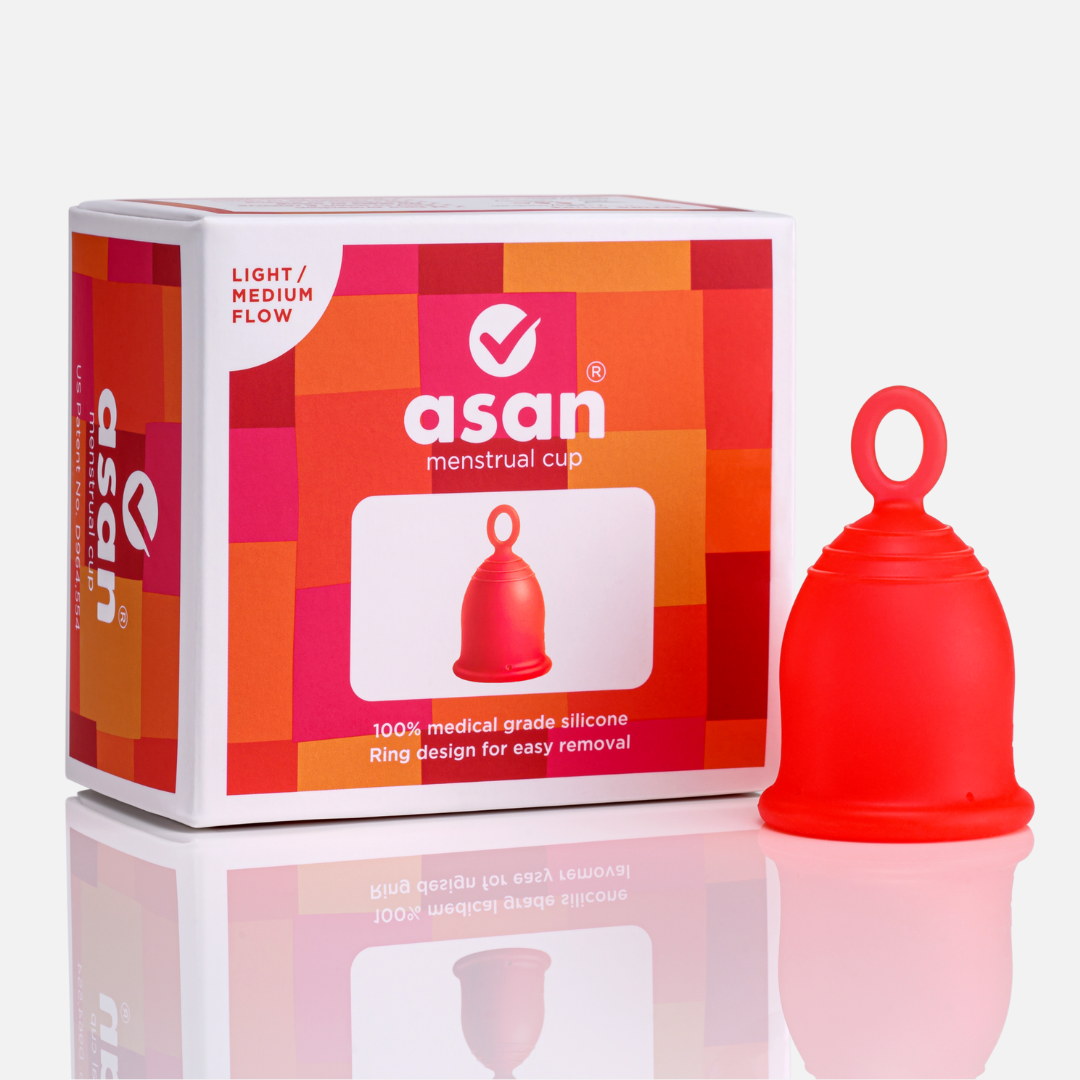
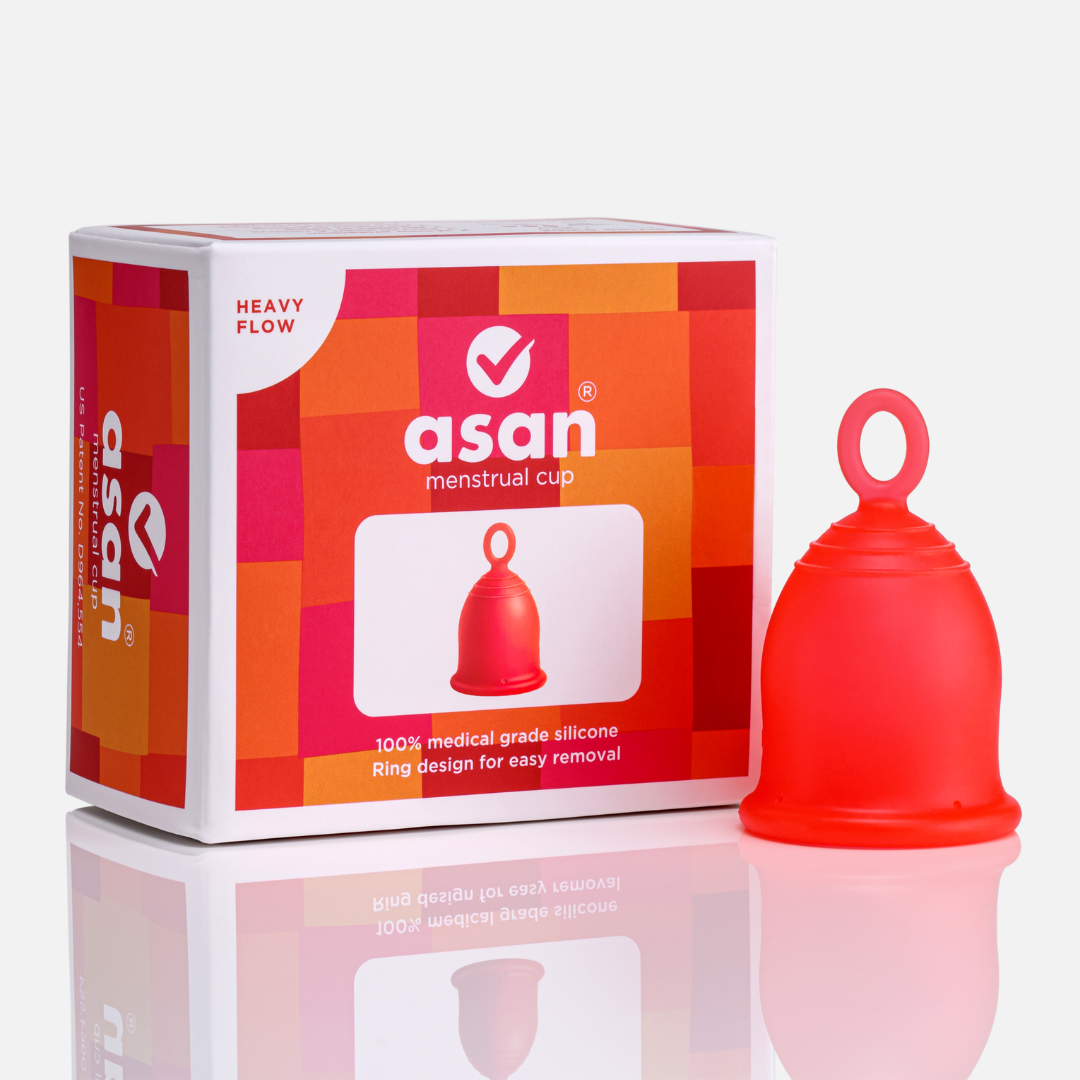
Asan Menstrual Cup
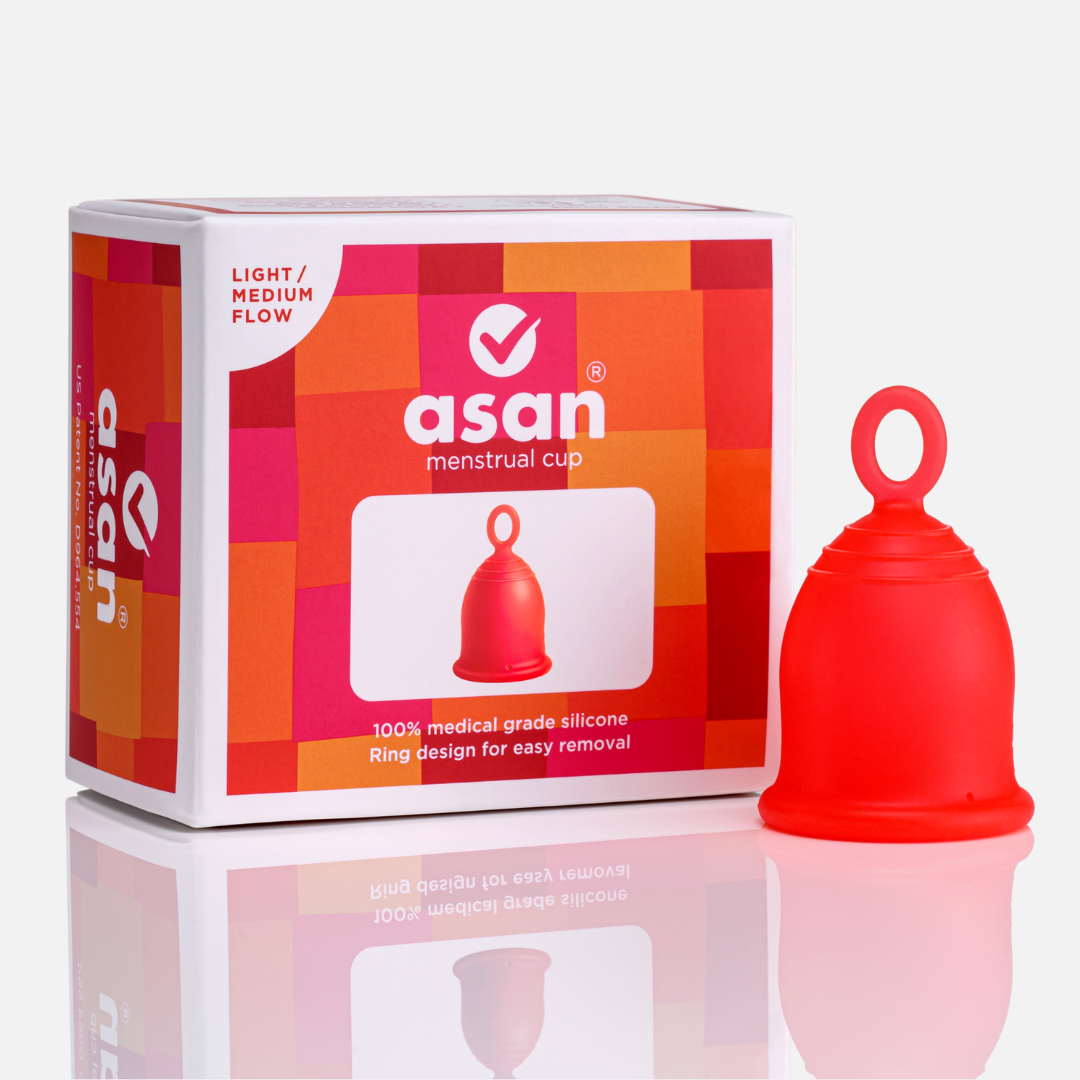

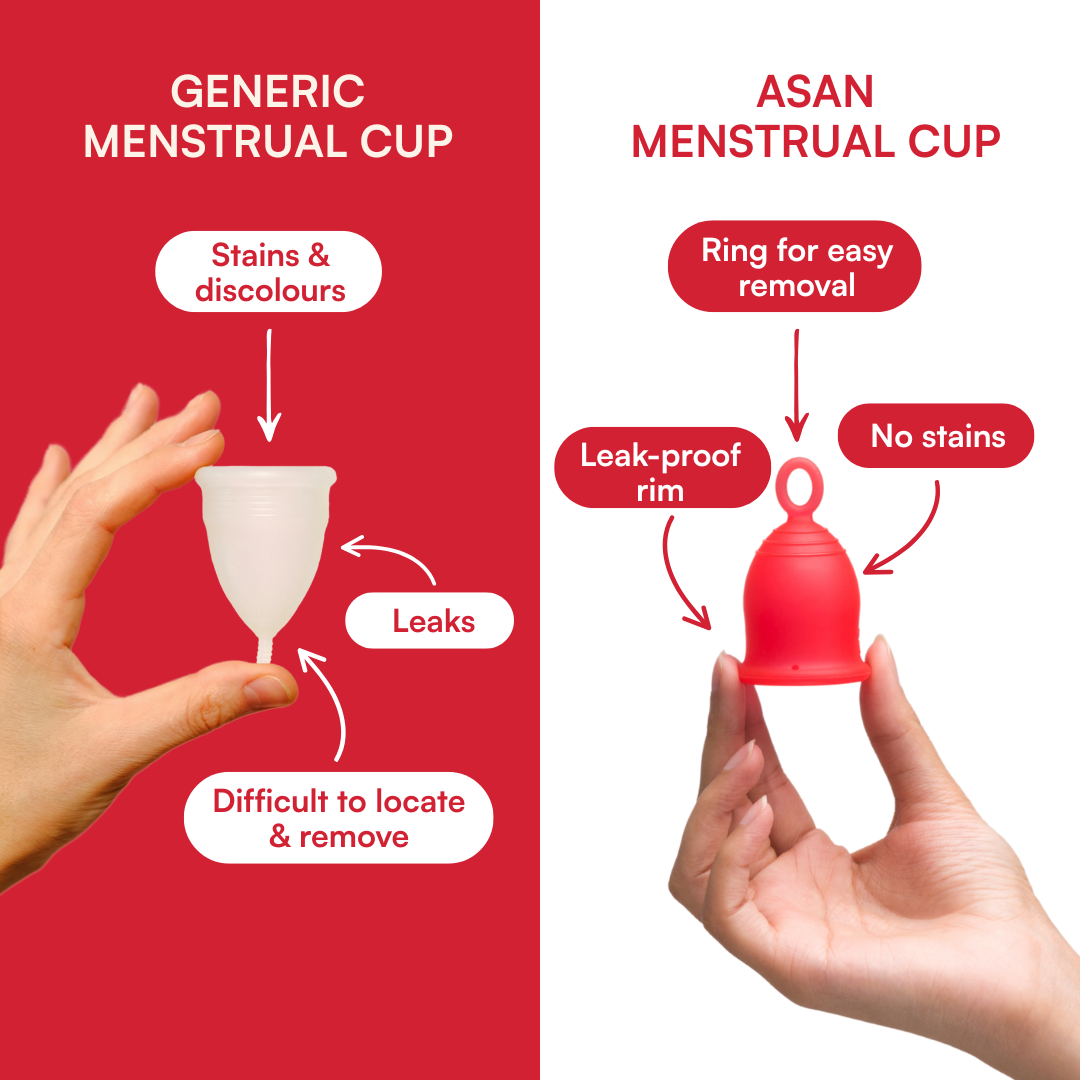

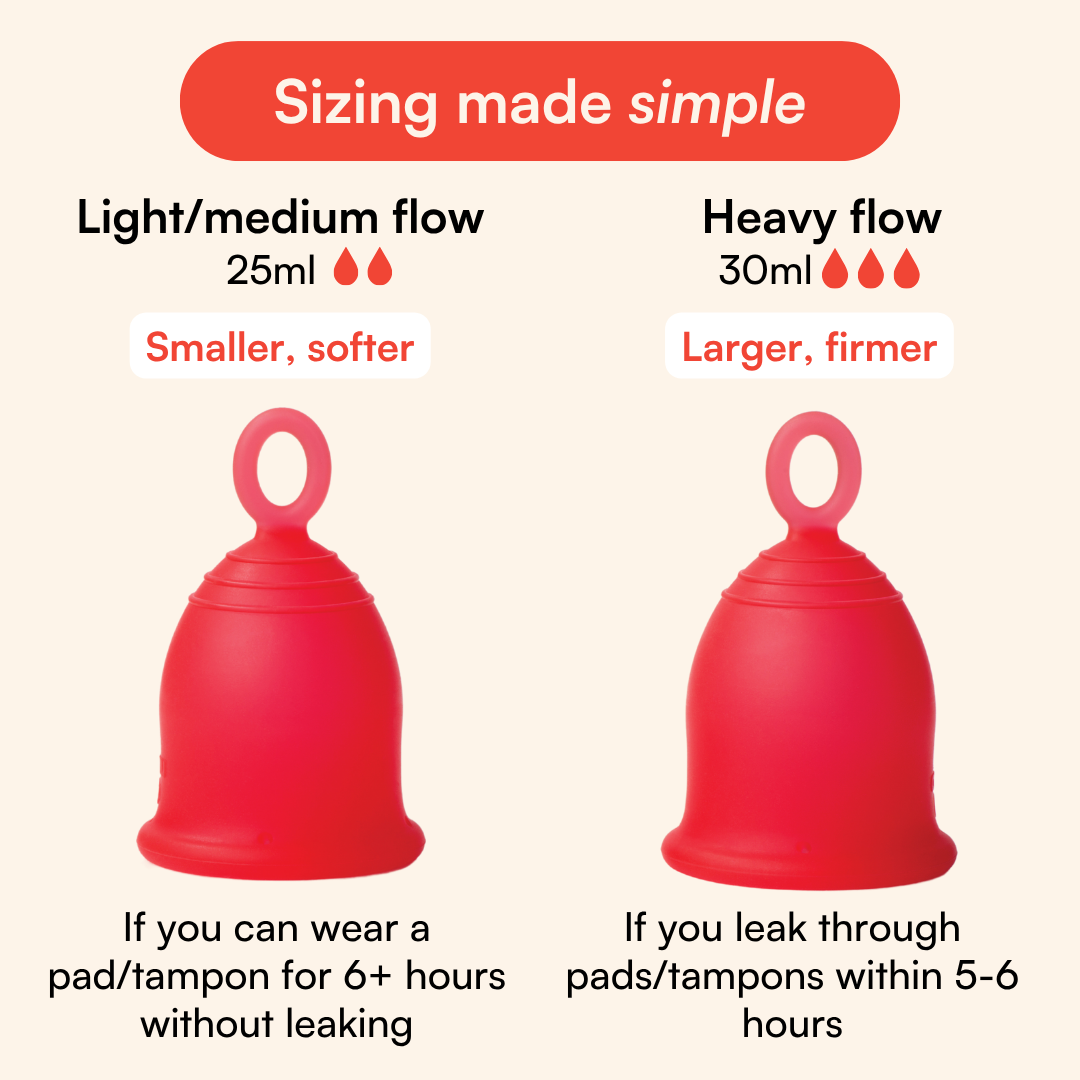
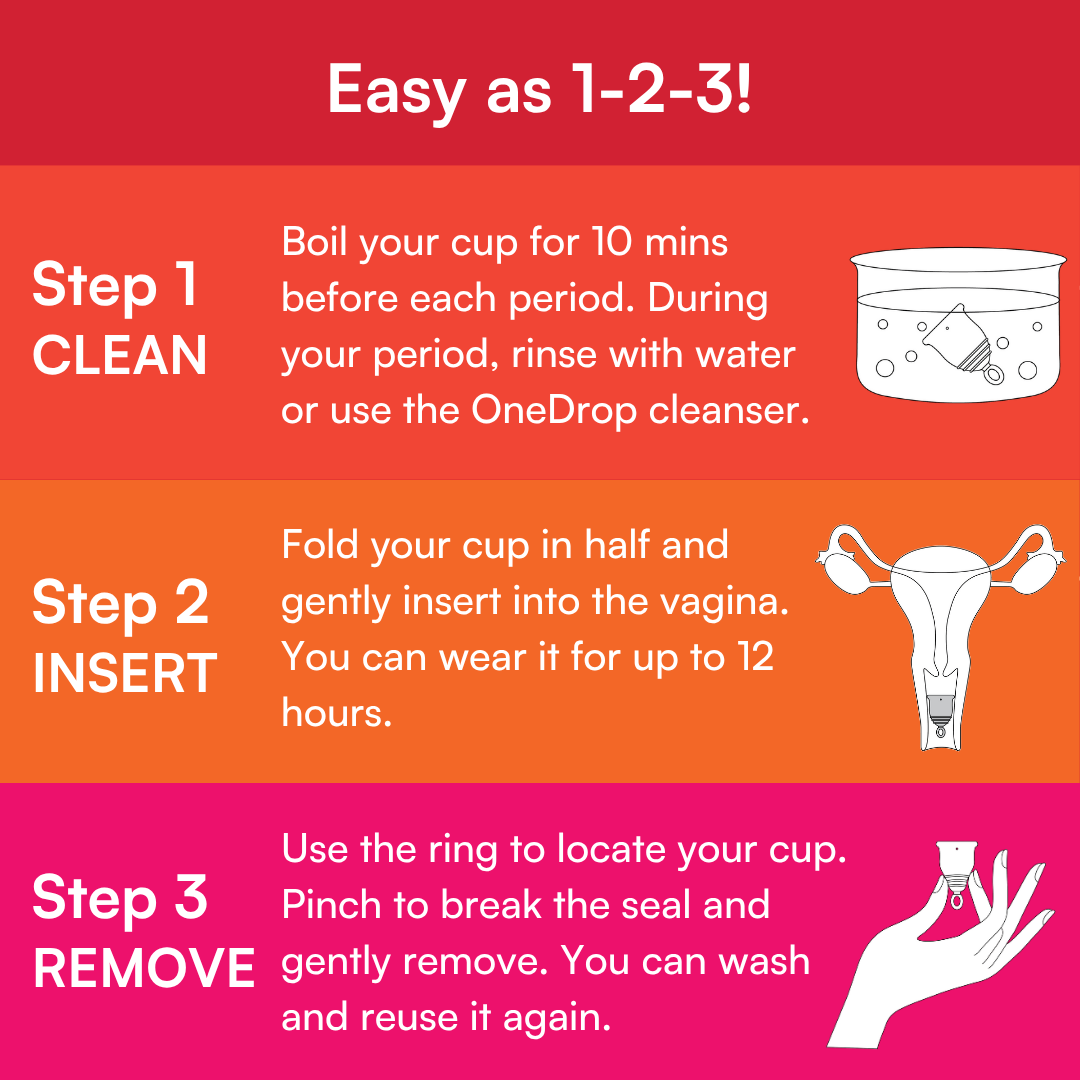

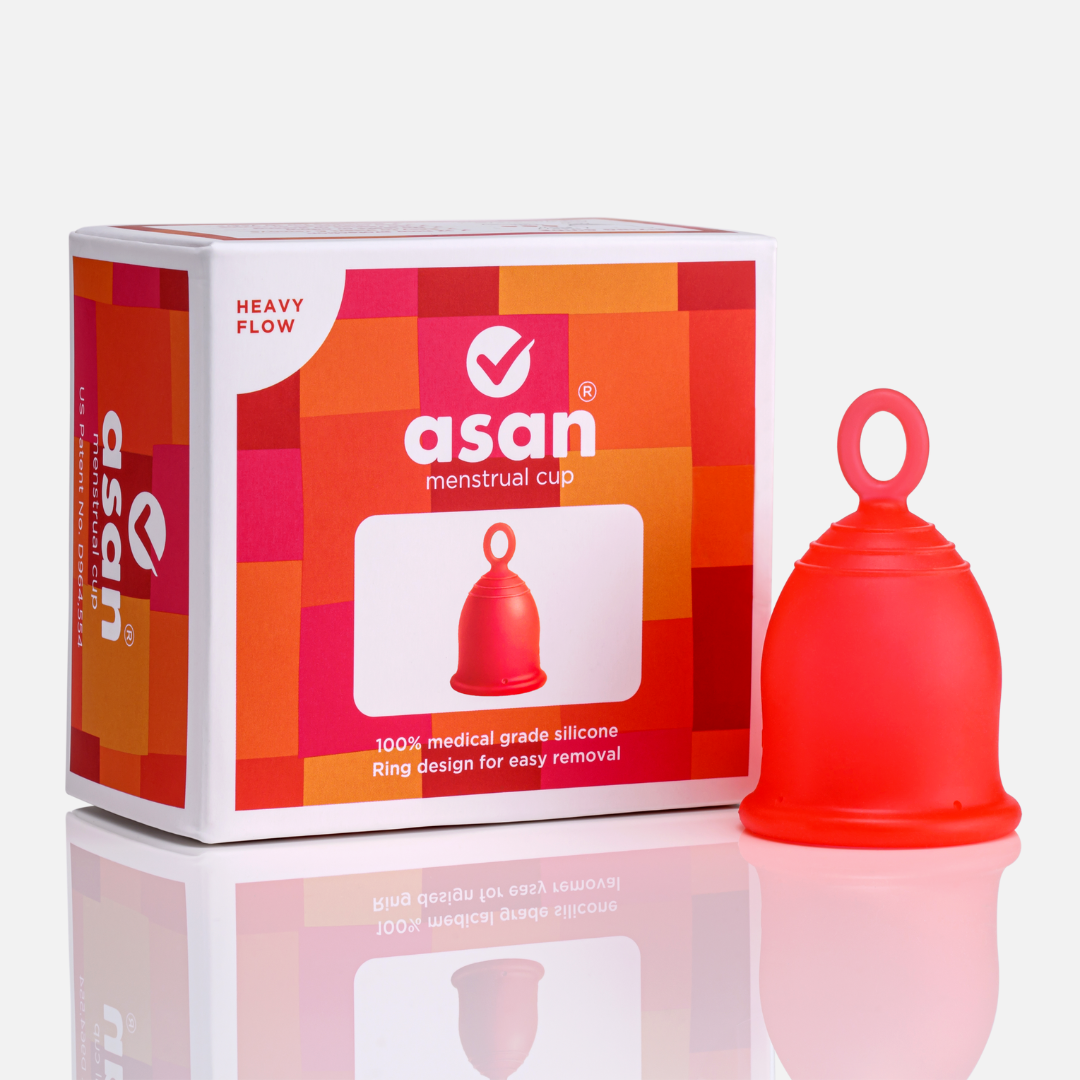
Frequently asked questions
Can I have a regular period while pregnant?
No, regular menstrual cycle cessation in pregnancy occurs once conception happens.
However, some people experience period-like bleeding during pregnancy, which is usually light spotting.
Is it normal to have spotting during early pregnancy?
Yes, spotting during pregnancy can happen due to pregnancy hormones and periods adjusting in your body. It’s often linked to implantation bleeding or hormonal shifts.
However, if you experience heavy bleeding or severe pain, consult a healthcare provider.
Can I get pregnant if I have unprotected sex during my period?
While it's less likely, it’s still possible. If you have a shorter ovulation cycle, sperm can survive long enough for conception after your period ends.
When will my periods return after giving birth?
The return of periods varies. If you're exclusively breastfeeding, menstrual cycle disruption in pregnancy can extend postpartum, delaying menstruation.
For others, menstrual flow reduction post-pregnancy ends within a few months, and regular cycles resume.
Can pregnancy tests detect pregnancy before a missed period?
Yes, some pregnancy tests can detect hormonal changes before late periods.
However, for the most accurate result, it’s best to wait until after your missed period.
Are menstrual cramps normal during pregnancy?
Some women experience cramping during pregnancy, which can feel similar to menstrual cramps. This can be due to the uterus expanding or other normal changes.
However, if cramps are severe or accompanied by bleeding, it is essential to seek medical advice.
More Posts
View all-

Asan cup: A solution to periods, plastic and pollution
Every month, billions of disposable pads and tampons contribute to a growing environmental crisis. In this article, Smiley Movement spotlights Ira Guha and the Asan Cup, a reusable, eco-friendly menstrual...
Asan cup: A solution to periods, plastic and pollution
Every month, billions of disposable pads and tampons contribute to a growing environmental crisis. In this article, Smiley Movement spotlights Ira Guha and the Asan Cup, a reusable, eco-friendly menstrual...
-

Top 5 books to learn about your body
Curious to learn more about your body but not sure where to start? This blog rounds up 5 insightful books that make anatomy, health, and womanhood easy to understand and...
Top 5 books to learn about your body
Curious to learn more about your body but not sure where to start? This blog rounds up 5 insightful books that make anatomy, health, and womanhood easy to understand and...
-

Top 5 challenges of being a social enterprise founder
Starting a social enterprise is exciting but not without challenges. In this blog, Asan’s founder shares the top 5 hurdles - from structuring your organisation and accessing suitable finance, to...
Top 5 challenges of being a social enterprise founder
Starting a social enterprise is exciting but not without challenges. In this blog, Asan’s founder shares the top 5 hurdles - from structuring your organisation and accessing suitable finance, to...
-

Is it safe to take period delay pills?
Thinking of delaying your period? This guide explains how period delay pills work, what to watch out for, and how tracking your cycle can make planning easier.
Is it safe to take period delay pills?
Thinking of delaying your period? This guide explains how period delay pills work, what to watch out for, and how tracking your cycle can make planning easier.
